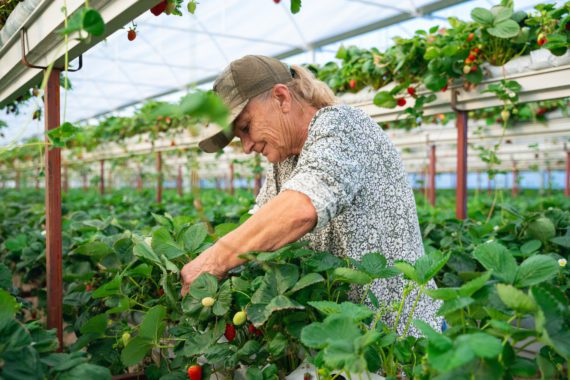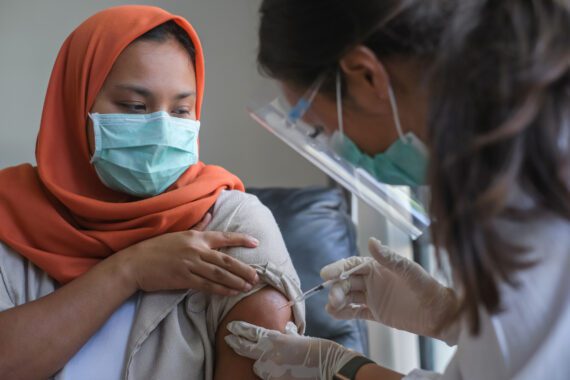Don Wambles, the head of farmers market promotions at the Alabama Department of Agriculture, describes the Senior Farmers Market Nutrition Program(SFMNP) as “one of the best programs the U.S. Department of Agriculture has ever come up with.”
The SFMNP is part of the U.S. farm bill—legislation that Bread for the World will prioritize this year since it is up for reauthorization by Congress. It is worth noting this high praise for a small program that many anti-hunger advocates may know little about.
As Congress begins to debate changes to the current farm bill, enacted in 2018, Bread for the World will continue its reporting on what is in the farm bill and how these programs affect U.S. hunger.Last month, we highlighted the importance of SNAP to rural economies in the United States.
Wambles is an ardent supporter of the SFMNP because, he says, it “provides a benefit to an elderly person who knows how to use fresh produce to make meals with, and the money ends up in the hands of the farmer to get cycled through the local community.”
Programs that support local food systems, consumers, and producers should work precisely in this manner. Alabama has the country’s third-largest SFMNP, after New York and then Ohio. Its popularity is due in no small part to Wambles’ enthusiastic promotion.
With additional funding, the SFMNP could serve more seniors. Unlike SNAP, which expands to meet the needs of the population, SFMNP budgets are fixed. They vary from state to state, but most states cannot afford to enroll everyone who qualifies and would like to participate.Bread’s advocacy for improvements in the upcoming farm bill will include asking Congress to increase funding for the program.
Bypassing intermediary steps such as packaging and marketing that often take a substantial cut of profits allows both seniors and farmers to benefit from SFMNP programs. Seniors are able to buy fresh fruits and vegetables directly from farmers at lower prices, while farmers keep more of the revenue from their sales.
One of these farmers is Larry LouAllen, 74, who currently produces fruits and vegetables on the 450 acres of LouAllen Farms in Moulton, AL. The LouAllen family has owned and farmed land here for 125 years. The SFMNP program has special meaning for LouAllen because those of his neighbors who are seniors living on fixed incomes can use their benefits to shop at his stand at the local market or at the store the family has opened at the farm.
“The value to the seniors in getting a balanced diet is worth a fortune,” LouAllen said.“Just the amount it saves in Medicare and Medicaid spending for the government has got to be huge.”
Studies have shown that LouAllen has a point: food insecurity is tied to increased risk of hospitalization for complications of diabetes.One in four seniors in Alabama has diabetes.Being able to eat healthy foods is a cost-effective way for people with diabetes to reduce their risk of dangerous complications. The American Diabetes Association estimated that in 2017, the cost of diabetes was $5.9 billion, some of which was borne by state and federal governments.
The American Rescue Plan Act (ARPA) included a temporary increase in SFMNP funding to $50 million per year. This more than doubled the program’s annual appropriations of $20 million. Alabama was able to use this increase to both expand the number of seniors able to participate and to raise the benefit from $30 to $50 per individual per year.
When ARPA funding expires in 2024, state agencies will have no choice but to cut many of the seniors they had been able to serve. Such a step backward doesn’t have to happen. A permanent increase in funding for SFMNP would help to fill unmet needs.This would do a great deal of good: feeding seniors, profiting farmers, and reducing healthcare expenditures.
Todd Post is senior domestic policy advisor with Bread for the World.



